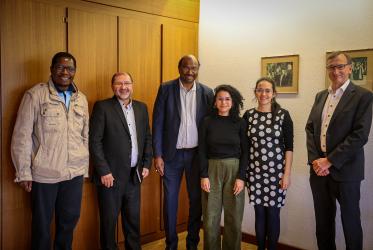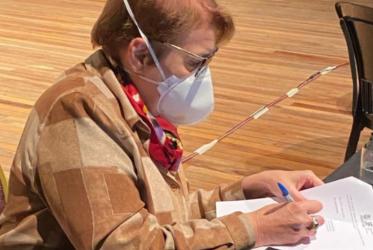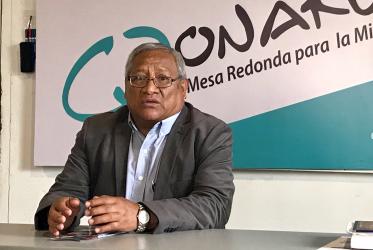Displaying 1 - 20 of 31
17 April 2024
WCC at peace dialogue table with UN Security Council in Colombia
15 February 2024
WCC backs extension of ceasefire in Colombia
18 January 2024
Justapaz shares peace-building work in Colombia
10 October 2023
Migrants in Argentina find listening ears and open hearts
04 November 2022
WCC expresses solidarity with Peruvian people amid political crisis
20 November 2020
Faltering Colombian peace process needs urgent work
07 June 2019














